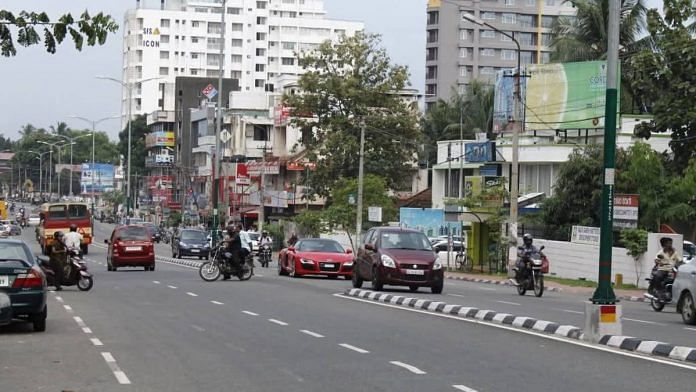New Delhi: India has a good story to tell in terms of climate change action ahead of the UN Climate Change Conference (COP26), said former foreign secretary Shyam Saran at the 13th All India Conference of China Studies (AICC) Saturday.
The COP26, to be held in Scotland’s Glasgow, was postponed by a year to November 2021 due to the Covid-19 pandemic.
Saran said that with coal likely be the focus point at COP26, India will have to tackle statements made by US Special Climate envoy John Kerry and discussions in the European Union claiming that though China is the largest coal-based thermal power capacity, it is “plateauing” and not growing as fast as in India.
“The good news is that as a result of India’s growth rate slowing down, the kind of projections there were for coal-based thermal power have not been realised,” he said. He also wondered why India is not more boastful for having one of the highest carbon taxes in the world.
The veteran diplomat was speaking at a panel discussion, titled ‘Reducing Dependency in Economic Engagement with China’, organised jointly by the Institute of Chinese Studies and the China Studies Centre at IIT Madras.
Also read: India has practically achieved pre-2020 climate targets, says Environment Minister Javadekar
‘India should decouple from China’
Saran suggested India decouple itself from China on climate change negotiations and come up with its own strategy as the two countries are no longer aligned on issues such as the principle of Common but Differentiated Responsibilities and Respective Capabilities (CBDR–RC) within the UN Framework Convention on Climate Change. The CBDR-RC is a principle which acknowledges the different capabilities and differing responsibilities of individual countries in addressing climate change.
In the late 2000s, India, China and other emerging economies worked closely to establish CBDR–RC as “fundamental” and “a principle of equity”, he explained. However, the Chinese later “went behind our back” and, along with support from the US, changed the wording of the principle to include “according to national circumstances”, said Saran.
This changed the international applicability of the principle and blurred the line between developed and developing countries with respect to climate change negotiations, he added.
India should not “blindly” join China in opposing border tax adjustments either as most of its exports are services, said the veteran diplomat. Border tax adjustments refer to the tax on goods according to the carbon emissions associated with their production.
The China paradox
China faces a “paradox” where on one hand, it is the biggest contributor to the world’s carbon emissions, and on the other, it has the largest and fastest renewable energy capacity in the world, said Saran.
China’s coal-based thermal power capacity is in excess of 1,000 gigawatts, and though it said it wouldn’t scale up its coal-based thermal power capacity in 2018, there is still 150-160 gigawatts of additional capacity in the pipeline, said Saran. At the same time, the country is positioning itself to be in the lead with regard to climate change action by raising commitments made in the Paris Accord, he said.
Yet, 45 per cent of global investment in renewable energy comes from China, said Saran. “The renewable energy capacity in China today, you’d be surprised, is 726 gigawatts. It’s really very large and growing very fast,” he added.
ThePrint was a digital partner for the ICS conference.
Also read: India will not be a hurdle to global climate goals even without net-zero emissions



